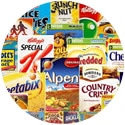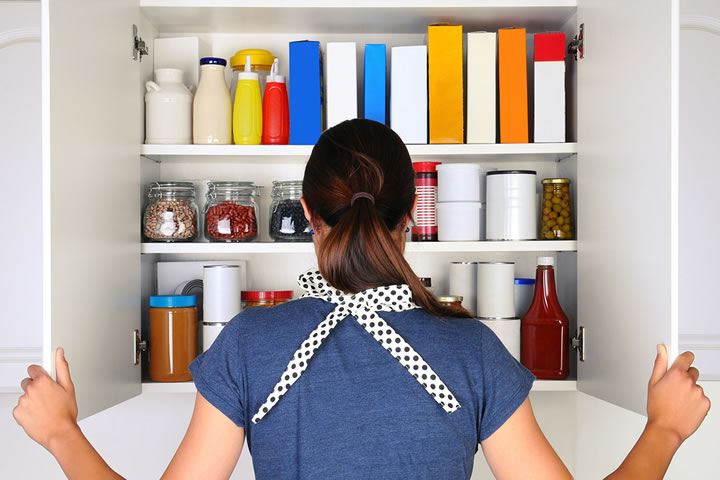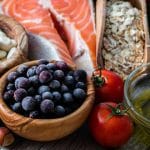Lynda: Optimum health and wellness is currently a hot topic with many companies jumping on the bandwagon to provide consumers with new and inventive ways to live their healthiest life yet.
While consuming as many natural, whole foods as possible and regular exercise are relatively straightforward ways to live a healthy lifestyle; there are many fad diets around which are over complicating the process. Some of these regimes have merit and some not-so-much.
Whether you’ve chosen paleo, dairy-free, Atkins, low GI, low calorie or something entirely different, there are a few staple items that people are still eating which they’ve been led to believe are good for them. The fact is, they aren’t, and the validity of any diet or nutrition program that condones the consumption of the following products should be questioned.
If you want to live a healthy as life as possible, here are three ‘healthy’ food items that you should throw out of your kitchen today and never eat again!
1. Breakfast Cereals

The truth is, your healthy cereals are loaded with sugar and while they may be ‘fortified’ with vitamins and minerals, nowhere does this state that they’re natural sources of said vitamins (they’re not), nor how little these contribute to you meeting your RDA. Check out the ingredients list, (listed in order of quantity), you will always find sugar near the top and the healthy vitamins and minerals near the bottom. The ingredients that connect the two in the middle are simply chemicals made up to make the cereals taste better, another selling point.
Starting the day with the massive sugar high that cereal gives you will increase your energy levels just long enough for you to get to work, or the kids to get to school, before the blood sugar crash hits. This will leave you tired, irritable, unable to concentrate and searching for more sugar and carbs to help you function again.
Not only that, even the low-fat versions of cereal are still full of sugar and, in fact, even more chemicals and nasty ingredients to make them taste half decent.
Breakfast cereals are so highly processed that they can barely even be considered a food, and if you throw the box that’s in your pantry away, never to be replaced, your body won’t mind one little bit.
Alternatives:
If you find it hard to break the tradition of a lifetime and you’re not sure what to have instead of cereal for breakfast, try eggs scrambled with veggies, a quick and easy omelette, oats with almond milk and a small serve of fruit, or a 180 Nutrition breakfast smoothie. Alexx Stuart does a great job of explaining why mainstream breakfast options are not the best choice here.
These natural options will keep you fuller for longer meaning you’re less likely to snack come mid-morning, and your weight loss goals won’t be affected either.
2. Bread

White bread, brown bread, pitta bread, naan bread, garlic bread… anything that ends in bread can be thrown out along with your cereal, and your body will seriously thank you for it!
Knowing that there’s not much of a valid argument in trying to sell the nutritional content of white bread anymore, marketers play on the fact that whole grain or whole wheat bread is better for you. And while that might be true to a degree, ‘better than’ white bread still doesn’t mean it’s good for you. Quite the opposite! Even though whole grain or whole wheat bread is slightly less processed, it’s still processed so much that it lacks anything that can count as nutrition, and contains a whole lot more that doesn’t.
Bread is hard to digest, can be high in harmful trans-fats and sugar, and is a leading cause of inflammation which is linked to serious health issues such as cancer and heart disease.
Gluten-free bread is no better. Sure, it doesn’t contain gluten which makes it slightly kinder to your gut and easier to digest, but the chemicals which make it taste OK are far worse for you in the long run. I repeat, gluten free bread is not a healthy option! Learn more about why gluten free foods are not as healthy as you may think here.
While everything is OK to have as a treat occasionally, find permanent alternatives to your bread consumption and see how your body responds next time you have it and take my word, it will hate you for it!
Alternatives:
Whenever you eat bread now, replace it with a salad, veggies or organic crackers. You’ll find these far more satisfying and far kinder on your body.
Still not convinced, learn what our guest expert Dr William Davis has to say on this topic: Lose the wheat and find your path back to health.
3. Margarine

I’m going to keep my disdain for margarine short and to the point. No matter how ‘healthy’ the labelling of margarine packets is, it’s harmful to your body. Margarine is highly processed (in taste, and appearance, it’s actually grey naturally), it’s jam packed with cancer and illness causing trans-fats, and while, yes, it is lower in saturated fat than butter, saturated fats in moderation aren’t bad for you. Saturated fat can reduce the risk of heart disease and can be burned off with exercise, unlike trans-fat which is stored in the body as fat cells. Learn more about why you never choose margarine over butter.
Alternatives.
Butter… organic, grass fed butter. Butter is high in healthy saturated fats which are good for you, and it tastes delicious too! I know it’s confusing, but it’s time to turn the old-fashioned mindset back again and always choose butter, NEVER margarine.
Once you rid these foods from your diet and find healthy alternatives, I guarantee you won’t look back.







